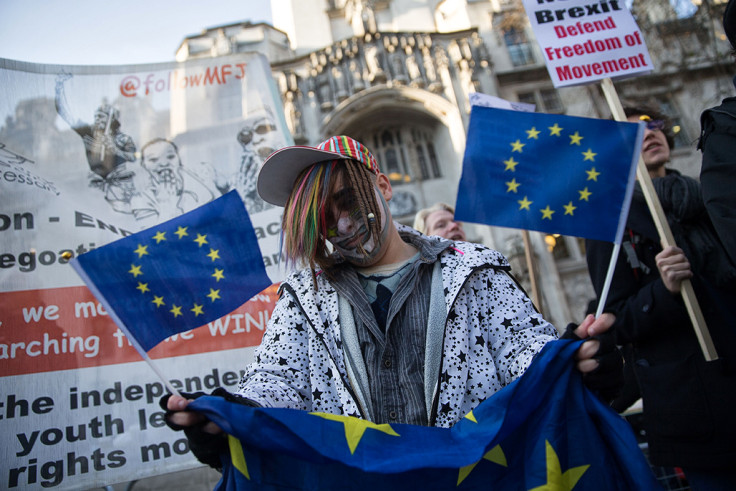Brexit looks like racism to the outside world - they need to be shown the truth
Brexit might revive the stalled world trading system – but it's still depicted as a matter of immigration.

I realise now why Brexit looks so different from overseas. I had already grasped there was a problem; but I had to come to Colombia to understand its magnitude.
Since 24 June, I have spent a lot of time explaining to foreign media (in their own languages, when I can) that the vote to leave the EU was not nativist or protectionist. I point to the polls showing that democracy was a far more important issue for Leave voters than immigration. I quote the upbeat and internationalist statements made by Michael Gove, Boris Johnson and Gisela Stuart during the debates.
The interviewers are usually incredulous. As far as they are concerned, the only Leaver was Nigel Farage, and the only argument was that there were too many foreigners in Britain. When I suggest that such a campaign would have lost, they smile indulgently.
Fairly typical was an interview I did with the main Mexican radio station last month. The first question was: "What message do you have for the Mexicans in London who are suffering from an increase in hate crimes?" I asked the interviewer what evidence there was for such an increase. Had he heard of any Mexicans in London suffering Brexit-related harassment? No, he admitted, but "the whole world knows what is going on".
The first rule of political campaigns is that hardly anyone listens to the other side. People don't read their opponents' arguments; only their friends' caricatures of their opponents' arguments. Most international journalists took their lead from the Financial Times, which presented the campaign as "prosperity versus xenophobia". They didn't weigh and dismiss the economic and constitutional arguments for voting Leave; they never heard them.
I have spent the past week in the Americas, talking up post-Brexit commercial opportunities. In the United States, there is warm enthusiasm from both parties for a bilateral trade deal. But, as I made my way south, I found that what I was saying was completely new to people.
Take sugar, I would tell Central American audiences. Under the Common Agricultural Policy, Britain is obliged to buy expensive European sugar, made from beet. Tate and Lyle backed Brexit largely because it wanted – quite rightly – to be free to buy at world prices. Surely, I would say, there are opportunities here for your azucareros, your sugar producers.
Few people had seen Brexit in that light, and they tended to perk up at the idea. In only one place did I find an unsurprised audience: the libertarian-leaning students and tutors at Francisco Marroquín University in Guatemala were already turning their restless minds to how Brexit might revive the stalled world trading system. Everywhere else, I felt like a missionary whose gospel, however joyful, is strange to his hearers' ears.
It was only when I reached Bogotá, though, that the full scale of the task hit me. You see, Colombia had its own referendum four months after ours, on whether to ratify a peace deal with the Marxist narco-terrorist organisation Farc.
The parallels between the two plebiscites are uncanny. In both cases, the establishment lined up behind one side: political parties, business and trade union confederations, broadcasters, civil servants. In both cases, the anti-government side, outspent, mocked and marginalised, pulled off an utterly unexpected win. In both cases, there followed protests by weeping Millennials blaming their defeat on bigotry and ignorance. In both cases, the losers sought to undo the result through procedure – and in Colombia's case, they succeeded.
I soon realised that I had fallen for the official narrative. I arrived thinking that Colombians had somehow voted "against peace". In fact, as I quickly learned talking to people on both sides, there had been perfectly good reasons for voting "No". Farc had been militarily defeated, yet the deal gave the terrorists seats in both chambers – seats that they could not win democratically. Many Colombians thought it wrong, in principle, to give Farc greater parliamentary representation than those parties which had eschewed violence and embraced democracy. They objected to a deal that went beyond amnesty and offered political concessions, such as land redistribution. They feared, in short, that the far left would win through force of arms what it had failed to win through force of argument.
My point is not that these arguments were automatically better than the other side's. There were decent people in both camps. Rather, it is that although I know Colombia slightly and occasionally read its newspapers online, these arguments were new to me. I had swallowed the line pedalled by overseas media, which was, roughly speaking: "Stupid Voters Whipped Up by Unscrupulous Demagogues to Oppose Peace Process".
That, mutatis mutandis, is the challenge that Britain faces. Even among the most Anglophile and free-market types, few have started to consider the likelihood that the UK will now become, in Theresa May's words, the "global leader in free trade". We have our work cut out.
Daniel Hannan has been Conservative MEP for the South East of England since 1999, and is Secretary-General of the Alliance of European Conservatives and Reformists
© Copyright IBTimes 2025. All rights reserved.






















